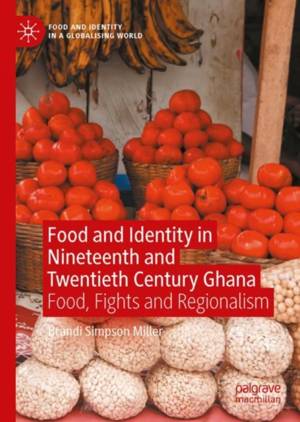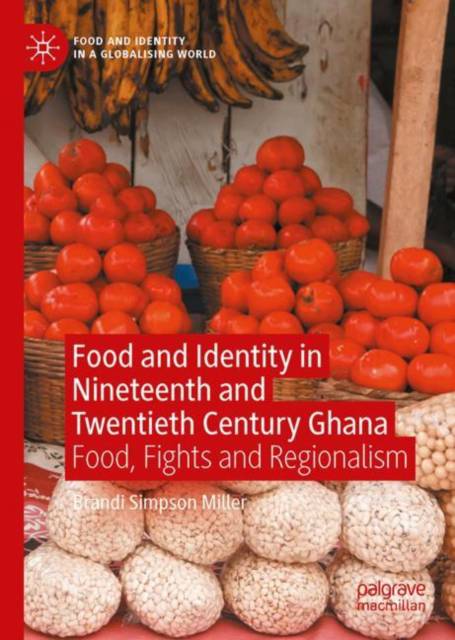
Door een staking bij bpost kan je online bestelling op dit moment iets langer onderweg zijn dan voorzien. Dringend iets nodig? Onze winkels ontvangen jou met open armen!
- Afhalen na 1 uur in een winkel met voorraad
- Gratis thuislevering in België vanaf € 30
- Ruim aanbod met 7 miljoen producten
Door een staking bij bpost kan je online bestelling op dit moment iets langer onderweg zijn dan voorzien. Dringend iets nodig? Onze winkels ontvangen jou met open armen!
- Afhalen na 1 uur in een winkel met voorraad
- Gratis thuislevering in België vanaf € 30
- Ruim aanbod met 7 miljoen producten
Zoeken
Food and Identity in Nineteenth and Twentieth Century Ghana
Food, Fights, and Regionalism
Brandi Simpson Miller
€ 126,95
+ 253 punten
Uitvoering
Omschrijving
This book investigates how cooking, eating, and identity are connected to the local micro-climates in each of Ghana's major eco-culinary zones. The work is based on several years of researching Ghanaian culinary history and cuisine, including field work, archival research, and interdisciplinary investigation. The political economy of Ghana is used as an analytical framework with which to investigate the following questions: How are traditional food production structures in Ghana coping with global capitalist production, distribution, and consumption? How do land, climate, and weather structure or provide the foundation for food consumption and how does that affect the separate traditional and capitalist production sectors? Despite the post WWII food fight that launched Ghana's bid for independence from the British empire, Ghana's story demonstrates the centrality of local foods and cooking to its national character. The cultural weight of regional traditional foods, their power to satisfy, and the overall collective social emphasis on the 'proper' meal, have persisted in Ghana, irrespective of centuries of trade with Europeans. This book will be of interest to scholars in food studies, comparative studies, and African studies, and is sure to capture the interest of students in new ways.
Specificaties
Betrokkenen
- Auteur(s):
- Uitgeverij:
Inhoud
- Aantal bladzijden:
- 319
- Taal:
- Engels
- Reeks:
Eigenschappen
- Productcode (EAN):
- 9783030884024
- Verschijningsdatum:
- 12/01/2022
- Uitvoering:
- Hardcover
- Formaat:
- Genaaid
- Afmetingen:
- 148 mm x 210 mm
- Gewicht:
- 548 g

Alleen bij Standaard Boekhandel
+ 253 punten op je klantenkaart van Standaard Boekhandel
Beoordelingen
We publiceren alleen reviews die voldoen aan de voorwaarden voor reviews. Bekijk onze voorwaarden voor reviews.











